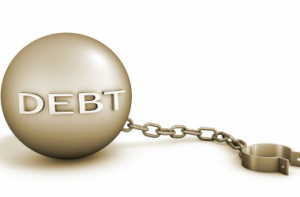 Today’s top story: Don’t be duped by these phone and email scams. Also in the news: Help with checking your finances, how a single mom paid off nearly $80K in debt in eight months, and 1 in 5 Americans are hiding this financial secret from their spouses.
Today’s top story: Don’t be duped by these phone and email scams. Also in the news: Help with checking your finances, how a single mom paid off nearly $80K in debt in eight months, and 1 in 5 Americans are hiding this financial secret from their spouses.
Don’t Be Duped by These Phone and Email Scams
Watching out for scammers.
Can’t Bear to Check Your Finances? Here’s Help
Ignorance isn’t bliss.
This single mom paid off $77,281 of debt in eight months—here are 5 steps she followed
Time to track everything.
1 In 5 Americans Are Hiding This Financial Secret from Their Spouses
Transparency is key.
 Today’s top story: Regretting your Equifax settlement choice? You can change it. Also in the news: What to buy (and skip) in August, considering CDs as savings interest rates fall, and how to wean your adult child off your credit cards.
Today’s top story: Regretting your Equifax settlement choice? You can change it. Also in the news: What to buy (and skip) in August, considering CDs as savings interest rates fall, and how to wean your adult child off your credit cards.  Things to watch out for in the Equifax data breach settlement, why you need a midyear budget check-in, and how much you’ll need to invest each month in order to retire with a million dollars.
Things to watch out for in the Equifax data breach settlement, why you need a midyear budget check-in, and how much you’ll need to invest each month in order to retire with a million dollars. Today’s top story: Is your debt good or bad? Also in the news: How to get a copy of your tax returns or an IRS transcript, why you might not get $125 in Equifax settlement money, and 13 tips for throwing a budget-friendly kid’s birthday party.
Today’s top story: Is your debt good or bad? Also in the news: How to get a copy of your tax returns or an IRS transcript, why you might not get $125 in Equifax settlement money, and 13 tips for throwing a budget-friendly kid’s birthday party. Today’s top story: Why you need a midyear budget check-in. Also in the news: Betterment hikes APY to 2.69% and adds checking and savings accounts, upgrading from your broker, and why you should always pay for a rental car with a credit card.
Today’s top story: Why you need a midyear budget check-in. Also in the news: Betterment hikes APY to 2.69% and adds checking and savings accounts, upgrading from your broker, and why you should always pay for a rental car with a credit card. Today’s top story: Is your wealth dripping away? Also in the news: How to navigate the Equifax data breach settlement, getting real about checking your finances, and looking for “relationship pricing” when you need a loan.
Today’s top story: Is your wealth dripping away? Also in the news: How to navigate the Equifax data breach settlement, getting real about checking your finances, and looking for “relationship pricing” when you need a loan.